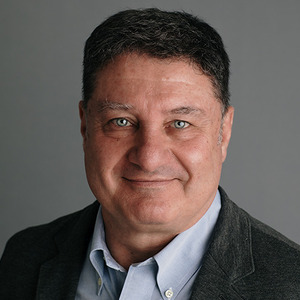
Francesco Carones
Power List Profile
Medical Director and Physician CEO, Advalia Vision, Milan, Italy
What is an interesting or little-known fact about you?
I had PresbyLASIK a few years ago and I am extremely pleased about the results. I feel I am the best ambassador for the procedures and surgeries that I am recommending.
Why did you decide to pursue ophthalmology/your subspecialty?
I really did not want to be an ophthalmologist at the very beginning. My father was an ophthalmic surgeon and I strongly did not want to be identified as his son in my career. I originally wanted to be a cardio-thoracic surgeon. At university, during my medical training, I first threw up and then passed out during the first and all following autopsies I had to attend. Then I threw up and passed out all the times I was in an OR when seeing blood and invasive surgical maneuvers. I was desperate, because I did not want to be a medical doctor, I always dreamed of being a surgeon. At that point, my father told me to at least come with him and see what my reaction was in his OR and… for the first time, I did not throw-up and pass out. I enjoyed the elegance of microsurgery, and I just decided that it was my future.
Who is someone in ophthalmology/your subspecialty that you feel has been particularly influential over the past 10 years?
Guy Kezirian. Unfortunately, a disease interrupted his career as a surgeon, but he did not give up. Thanks to his great attributes – passion, entrepreneurship, commitment, charity to cite just a few – he contributed to elevate refractive surgery to higher standards and to educate refractive surgeons not only on their clinical/surgical skills, but also on their hidden values through really mind-opening programs.
What’s been the biggest breakthrough in ophthalmology/your specific field over the last 10 years?
The biggest breakthrough in my specific field is the paradigm shift that we are facing regarding the approach we are having when counseling patients for refractive surgical procedures. Particularly regarding the world of presbyopia-mitigating IOLs. Nowadays, we have so many options that patients may really receive a personalized solution that can match at best their expectations, limiting dramatically the compromises that are associated with any kind of choice. The word “cataract surgery” in my practice has been turned into “lens replacement surgery” where cataract may be one of the reasons for the replacement, like refractive and dysfunctional lens syndrome are other reasons. Especially in the presbyopic age, we have so many options and solutions besides lens replacement to give spectacle independence and a better quality of life to our patients.
Is there a particular tool, technological advance, or instrument you would not have been able to live without over the past 10 years?
Anterior segment OCT coupled with Placido disk-based corneal topography. This technology gives so much detailed information regarding ocular structures, such as the corneal epithelium, that were not possible to investigate and evaluate earlier. This technology now drives so many decisions for the refractive surgeon, that I am wondering how I could do my job earlier.
What would you like to see change in ophthalmology/your subspecialty over the next 10 years – and why?
I would really like to see refractive surgery becoming a standalone specialty, like plastic surgery became in relation to general surgery. When referring to refractive surgery, I am not limiting it to laser procedures or corneal approaches, but to all involving refraction as the final outcome for the patient’s vision. Lenses and IOLs implants, corneal cross-linking, any surgeries leading to a change or shift in refraction are to be considered refractive procedures. The level of competence, skills and knowledge that a refractive surgeon must have today is huge. To guarantee optimal results to all patients undergoing any refractive surgical procedures worldwide, a greater focus has to be put on programs teaching refractive surgery, as to establish curricula and certifications to qualify refractive surgeons.
Where do you predict ophthalmology/your subspecialty will be 10 years from now?
Refractive surgical procedures have such a limited impact on the population in relation to the number of people suffering from refractive errors. I believe that, through proper education and information, a significant number of potential candidates may really take advantage of these elective, yet extremely efficient, safe and satisfactory procedures to improve quality of life. I am not limiting this to people living in the so-called developed countries, where other refractive solutions like spectacles and contact lenses are fully available. I am also including all the populations where spectacles and contact lenses may be difficult to have or use, because of availability or physical impairments. For people living in less developed countries or suffering from disabilities, not being able to see clearly may mean significant problems; for instance, they may not be able to find a job or work.
Who would you invite to your dream dinner party?
A dream dinner party, being a dream, should include individuals who, unluckily, are not here any longer too. So my list includes Nelson Mandela, Mother Theresa from Calcutta, Richard Bach (the author of Jonathan Seagull), Enzo Ferrari (the founder of Ferrari), Putin-Zelensky-Biden-Xi Jinping (just to have them clarify some matters), Earvin “Magic” Johnson, “o Rey” Pelè, Stanley Kubrik, Ursula von der Leyden, Queen Elizabeth II, Monica Bellucci, Jack Nicholson, Freddie Mercury, and Charles Kelman.
